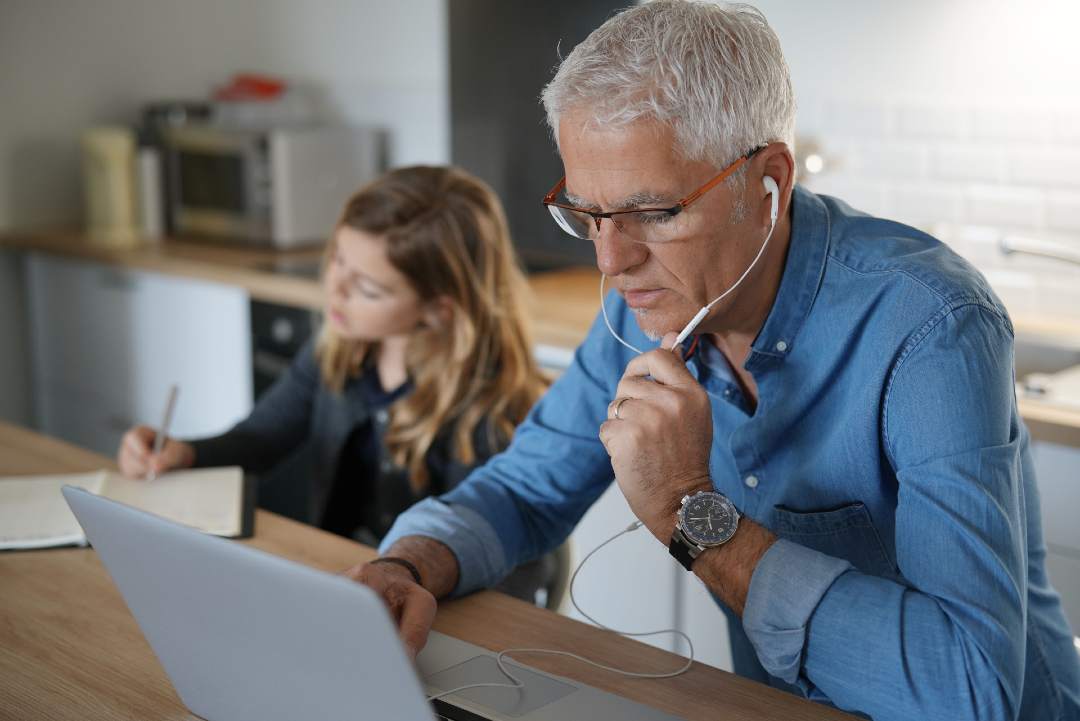By Mark Shrimpton, People Director, Martin James Network
As April 2021, is stress awareness month, I’ve been considering how I’ve responded to stress over the last 12 months. And I would like to take this opportunity to share some of the impact that the COVID-19 pandemic has had on myself.
Millions of people around the UK have experienced high levels of stress this year. According to the Mental Health Foundation, 74% of adults have felt so much stress at some point during the pandemic that they have felt overwhelmed or unable to cope.
Research shows that stress damages both our physical health (it can potentially lead to heart disease, problems with our immune system, insomnia and digestive problems) and our mental health including anxiety and depression. This can lead on to suicidal thoughts and it’s been shown that suicide is the biggest killer of people under the age of 35. This is more deadly than cancer and car accidents. Men are three times more likely to take their own life than women.
The Stress Management Society recently collaborated with Huawei to conduct a survey on stress. They found that 65% of people in the UK have felt more stressed since the COVID-19 restrictions began in March 2020. This research made me consider how I have felt since the restrictions began. Although I’m in a high pressure role, in the past I’ve been able to cope with stresses and concerns by having clear boundaries between work and personal time, this enables me to switch off both physically and mentally. I talk to colleagues about work when I am in the office, building face to face relationships. And when I am at home, I am able to relax with my family and children, Jake and Olivia. Even in times of what others would see as high pressure, I’ve previously been able to keep a clear relaxed mind and focus on the key points needed to invariably resolve an issue.
However, since the pandemic and restrictions started, I have felt and reacted differently to issues. With isolation, at times, my mood dipped significantly and negatively. Leaving me with the feeling that I’m unable to cope with all of the different issues that COVID has brought, whether that has been work-related, or working and home schooling the children, or just on a personal level.
At times, I’ve felt like I’ve been failing and not having an impact and simple issues such as misreading an email have escalated quickly in my mind. Without being able to discuss things face to face and resolve misunderstandings quickly in the office, these issues have played on my mind. On occasion this has led to insomnia, waking at 3am in the morning worrying about some minor work issue and all the possible resolutions, before falling asleep at 5am. When I wake up, the resolutions are fully forgotten! All of these thoughts tend to occur when I’ve not had contact with people 1:1 for a few days or my contact has been through large Team meetings.
These “swings” in mood become more pronounced the longer the lockdown has gone on, especially since January 2021, when the days have seemed so long. When I consider that I or none of my family have been furloughed, made redundant or contracted COVID, I understand that I’ve been in a privileged position through the pandemic and, at times I’ve questioned myself as to why I should be suffering stress and pressure compared to those who have had a much more difficult experience.
When I haven’t been in a low mood and look back though, the irony is it that all of the pressure and stress I have felt, is down to my own expectations on myself. Expectations that I could do better and that there must be something else I can do. Yes, it’s been an extremely busy time and with challenges that HR or People Teams have never faced before, but all of the pressure and stress I have felt has been through my own expectations and not from others.
As an introverted People Director, I’ve felt unable to talk to others about how I’m feeling directly and, at times, I’ve exacerbated my stress by keeping it internally to myself. This is despite knowing of all the support structures in place, whether that’s via our team of mental health champions, external and independent counsellors, mental health resources available via our TalkOut app or the support of the leadership team within Martin James Network.

So how have I reacted to these stresses?
The first point is that I’ve been able to identify when I’ve been feeling low (some times quicker than other times) and recognise that I need to do something about it. Sometimes, that has been a simple resolution such as picking up the phone (and not Teams) to have a conversation with someone and clarifying points rather than emailing back and forth. I can’t tell you how many times I built something up in my mind over the last 12 months based on a misread email and then resolved it in a 10 second conversation later in the week.
Other times it’s been about asking for feedback, and asking my team “How am I doing?” “What can I be doing differently?” “How are you feeling?” To sense-check if the issues in my mind are as large as I think they are. It’s been about ensuring that I have a break from work, ensuring that I take annual leave, even if it has meant “holidaying” in the lounge for a few days, rather than working in the kitchen. I’ve heard people say that it’s a waste of leave, to save it for when you can go somewhere, but the difference even 24 hours has made or a long weekend off has made to my own mental health has been enormous.
In addition, I’ve forced myself to take walks at least at the start and end of each day and to get fresh air rather than remaining in my house all day. When I can, I’ve taken walking meetings and walking lunches to help too. Equally, I’ve also taken opportunities to go into the office when possible (in a socially distanced way), to meet and talk to people and clarify some points that, working from home, would feel like they could take weeks to fix.
It’s these techniques that have helped, but I still need to identify when I’m feeling stressed and what I can do to help myself further. Individually we need to understand what is causing us personal stress, and learn what steps we can take to reduce it for ourselves and those around us.
There are many steps that could be taken, however they may include:
Knowledge – what is causing you stress; anticipate stressful periods and plan for them; develop strategies to help you cope with stress.
Feelings – don’t suppress your feelings, acknowledge them to yourself and share with others; learn to be flexible and adaptable.
Behaviour – Use your free time productively; avoid blaming others for your situation; provide positive feedback to others; learn to say no or set boundaries; acknowledge problems as they appear.
Support – Ask for direct help and be receptive when it is offered; tell those that support you how much you appreciate them.
Thoughts – Challenge your “musts” and “shoulds”; don’t jump to conclusions; remember the positives rather than the negatives.
Lifestyle – Keep healthy and eat and drink healthily; practice some form of exercise; plan your use of free time and seek variety and change of paces.
Personal development – Practice mindfulness; establish a personal sense of direction; maintain a sense of proportion.
Not all of these steps will work for everyone, but being aware of them and practicing only a few can make a difference. This year’s theme of Stress Awareness Month of “Regaining Connectivity, Certainty and Control’ ties into this.
Within the Martin James Network, we have a team of Mental Health Champions supported by the TalkOut Group who act as confidants and signposts to those who want to talk to someone independent. We hope that this blog promotes a better understanding of the needs and feelings of others, and helps you to seek support if you need it.
If you are concerned about yourself or a loved one and would like expert advice please check out the following mental health charity helplines.
